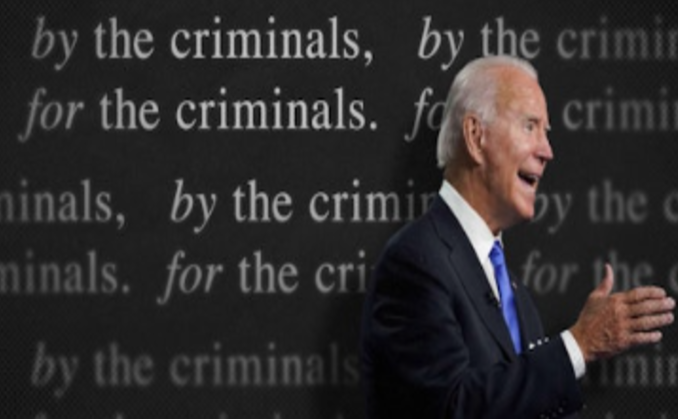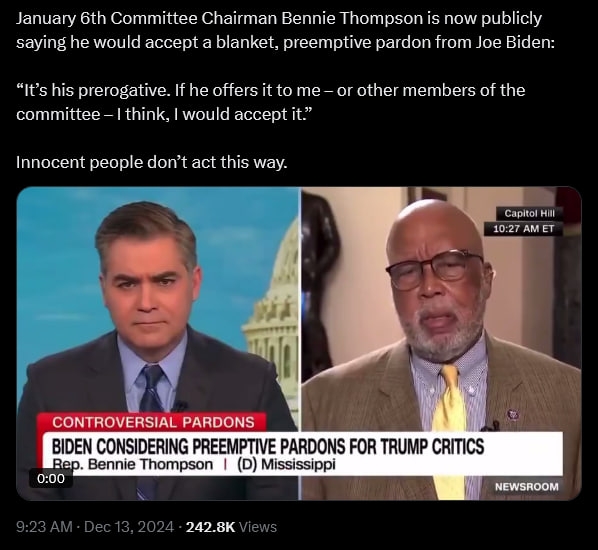USAA Punished for it Claims Handling
Punitive Damages Should be Awarded With Caution and Within Narrow Limits
Read the full article at https://www.linkedin.com/pulse/usaa-punished-claims-handling-barry-zalma-esq-cfe-nbp2c, see the full video at and at and at https://zalma.com/blog plus more than 4950 posts.
Posted on December 19, 2024 by Barry Zalma
DISPUTE OVER HURRICANE DAMAGES RESULTS IN MAJOR PUNITIVE DAMAGES FOR BAD FAITH
Although he Mississippi Supreme Court recognized the need to only award punitive damages with caution and within narrow limits, it did not limit its award in accordance with that maxim. After almost 19 years of litigation the last appeal resolved the various disputes.
FACTS
Hurricane Katrina destroyed Paul and Sylvia Minor’s home on August 29, 2005. The Minors had a homeowner’s insurance policy with United Services Automobile Association (USAA). The USAA policy covered damage caused by wind but excluded damage caused by storm surge or flood. The Minors reported their loss with USAA, which resulted in a years-long coverage dispute. USAA ultimately issued payments for damage it concluded was caused by wind but not for damage it concluded was caused by storm surge or flood.
The Minors maintained that they suffered a total loss caused by wind and demanded that USAA pay the policy limits. The case proceeded to trial in 2013, and the jury awarded the Minors $1,547,293.37 in compensatory damages.
In United Services Automobile Association v. Estate Of Sylvia F. Minor, Kathryn Minor and Stephen Minor, No. 2023-CA-00049-SCT, Supreme Court of Mississippi, En Banc (December 5, 2024) resolved the bad faith claims.
The issue was ultimately presented to a jury. The jury awarded the Minors $10,000,000 in punitive damages and $457,858.89 in extra-contractual damages (solely attorneys’ fees). USAA appealed, raising several assignments of error.
Trial
To establish its bad faith claim, the Minor Estate introduced various USAA documents, including (1) portions of the USAA underwriting file; (2) the confidential email regarding (a) the engineer’s March 2006 findings and (b) Bergstrom’s conclusion that USAA would be responsible for paying for all the windows and the contents in rooms with windows; and (3) USAA’s letter to the Minors in June 2006 indicating the majority of damage was due to flooding.
Punitive Damages
Punitive damages are considered an ‘extraordinary remedy’ and should be awarded ‘with caution and within narrow limits.'” The Supreme Court found that the evidence presented at trial demonstrates a type of conduct for which punitive damages were designed. The Minor Estate provided sufficient proof that USAA acted in bad faith, with complete disregard for the Estate’s rights.
Whether The $10 Million Punitive Damages Award Should Be Reversed Or, Alternatively, Reduced.
USAA alternatively argues that the $10 million verdict should be reduced because it claims that the damages award is a 22:1 ratio and therefore unconstitutionally disproportionate to the extra-contractual damages awarded ($457,858.89). USAA relies on State Farm Mutual Auto Insurance Co. v. Campbell, 538 U.S. 408, 425, 123 S.Ct. 1513, 1524, 155 L.Ed.2d 585 (2003), which states that “[s]ingle-digit multipliers are more likely to comport with due process.” USAA argued that a 1:1 ratio should apply to the damages award here.
The Supreme Court found that punitive damages is less than seven times the amount of compensatory damages, which it concluded clearly falls within the guideline provided in Campbell.
A punitive damages award not only serves as a deterrent, it also compensates the plaintiff for its public service in bringing the action. The Supreme Court found the trial court’s decision to force the Minor Estate to use nearly half of its award to pay attorneys’ fees does not adequately compensate the Estate for bringing this action against USAA for its bad faith conduct in handling the Minors’ insurance claim from 2005. Therefore, the Supreme Court concluded that the trial court erred by denying the Estate’s post-trial motion for attorneys’ fees.
CONCLUSION
In sum, the trial judge did not err as a matter of law by submitting the issue of punitive damages to jury, and the $10 million award of punitive damages is not unconstitutionally disproportionate. The Supreme Court affirmed the jury verdict awarding the Minor Estate $10 million in punitive damages and $457,858.89 in extra-contractual damages as to attorneys’ fees and reverse the judgment of the trial court and render attorneys’ fees on behalf of the Estate in the amount of $4,500,000, plus post-judgment interest at an annual rate of 4 percent from October 3, 2022, the date of judgment, until paid.
ZALMA OPINION
This case that dragged on through the courts of Mississippi for 19 years and resulted in compensatory damages based upon an interpretation finding coverage for the estate and that the insurer’s conduct was so egregious that the estate was entitled to tort damages plus punitive damages many times more than the compensatory damages. The Supreme Court astonishingly concluded that punitive damages were not limited to punishing the insurer but were payment to the estate for its action on behalf of everyone in the state of Mississippi and that they should not be required to pay their lawyers but that payment should come from the insurer as part of its punishment. The Supreme Court ignored the fact that as a result the estate must pay income taxes on the punishment damages since they are not designed to make the insured whole and punished each member and insured of USAA.
In my opinion it’s time the courts of the USA do away with the tort of bad faith to avoid excessive judgments and allow contract disputes to be enlarged into a major amount of punishment for an insurer who rejected a claim based on interpretation of contract terms and the facts of a loss, like this case. In that regard see my book, It’s Time to Abolish The Tort of Bad Faith Available as a paperback here. Available as a Kindle book here.
(c) 2024 Barry Zalma & ClaimSchool, Inc.
Please tell your friends and colleagues about this blog and the videos and let them subscribe to the blog and the videos.
Subscribe to my substack at https://barryzalma.substack.com/subscribe
Go to X @bzalma; Go to Newsbreak.com https://www.newsbreak.com/@c/1653419?s=01; Go to Barry Zalma videos at Rumble.com at https://rumble.com/account/content?type=all; Go to Barry Zalma on YouTube- https://www.youtube.com/channel/UCysiZklEtxZsSF9DfC0Expg
Go to the Insurance Claims Library – https://lnkd.in/gwEYk
USAA Punished for it Claims Handling
Punitive Damages Should be Awarded With Caution and Within Narrow Limits
Read the full article at https://www.linkedin.com/pulse/usaa-punished-claims-handling-barry-zalma-esq-cfe-nbp2c, see the full video at and at and at https://zalma.com/blog plus more than 4950 posts.
Posted on December 19, 2024 by Barry Zalma
DISPUTE OVER HURRICANE DAMAGES RESULTS IN MAJOR PUNITIVE DAMAGES FOR BAD FAITH
Although he Mississippi Supreme Court recognized the need to only award punitive damages with caution and within narrow limits, it did not limit its award in accordance with that maxim. After almost 19 years of litigation the last appeal resolved the various disputes.
FACTS
Hurricane Katrina destroyed Paul and Sylvia Minor’s home on August 29, 2005. The Minors had a homeowner’s insurance policy with United Services Automobile Association (USAA). The USAA policy covered damage caused by wind but excluded damage caused by storm surge or flood. The Minors reported their loss with USAA, which resulted in a years-long coverage dispute. USAA ultimately issued payments for damage it concluded was caused by wind but not for damage it concluded was caused by storm surge or flood.
The Minors maintained that they suffered a total loss caused by wind and demanded that USAA pay the policy limits. The case proceeded to trial in 2013, and the jury awarded the Minors $1,547,293.37 in compensatory damages.
In United Services Automobile Association v. Estate Of Sylvia F. Minor, Kathryn Minor and Stephen Minor, No. 2023-CA-00049-SCT, Supreme Court of Mississippi, En Banc (December 5, 2024) resolved the bad faith claims.
The issue was ultimately presented to a jury. The jury awarded the Minors $10,000,000 in punitive damages and $457,858.89 in extra-contractual damages (solely attorneys’ fees). USAA appealed, raising several assignments of error.
Trial
To establish its bad faith claim, the Minor Estate introduced various USAA documents, including (1) portions of the USAA underwriting file; (2) the confidential email regarding (a) the engineer’s March 2006 findings and (b) Bergstrom’s conclusion that USAA would be responsible for paying for all the windows and the contents in rooms with windows; and (3) USAA’s letter to the Minors in June 2006 indicating the majority of damage was due to flooding.
Punitive Damages
Punitive damages are considered an ‘extraordinary remedy’ and should be awarded ‘with caution and within narrow limits.'” The Supreme Court found that the evidence presented at trial demonstrates a type of conduct for which punitive damages were designed. The Minor Estate provided sufficient proof that USAA acted in bad faith, with complete disregard for the Estate’s rights.
Whether The $10 Million Punitive Damages Award Should Be Reversed Or, Alternatively, Reduced.
USAA alternatively argues that the $10 million verdict should be reduced because it claims that the damages award is a 22:1 ratio and therefore unconstitutionally disproportionate to the extra-contractual damages awarded ($457,858.89). USAA relies on State Farm Mutual Auto Insurance Co. v. Campbell, 538 U.S. 408, 425, 123 S.Ct. 1513, 1524, 155 L.Ed.2d 585 (2003), which states that “[s]ingle-digit multipliers are more likely to comport with due process.” USAA argued that a 1:1 ratio should apply to the damages award here.
The Supreme Court found that punitive damages is less than seven times the amount of compensatory damages, which it concluded clearly falls within the guideline provided in Campbell.
A punitive damages award not only serves as a deterrent, it also compensates the plaintiff for its public service in bringing the action. The Supreme Court found the trial court’s decision to force the Minor Estate to use nearly half of its award to pay attorneys’ fees does not adequately compensate the Estate for bringing this action against USAA for its bad faith conduct in handling the Minors’ insurance claim from 2005. Therefore, the Supreme Court concluded that the trial court erred by denying the Estate’s post-trial motion for attorneys’ fees.
CONCLUSION
In sum, the trial judge did not err as a matter of law by submitting the issue of punitive damages to jury, and the $10 million award of punitive damages is not unconstitutionally disproportionate. The Supreme Court affirmed the jury verdict awarding the Minor Estate $10 million in punitive damages and $457,858.89 in extra-contractual damages as to attorneys’ fees and reverse the judgment of the trial court and render attorneys’ fees on behalf of the Estate in the amount of $4,500,000, plus post-judgment interest at an annual rate of 4 percent from October 3, 2022, the date of judgment, until paid.
ZALMA OPINION
This case that dragged on through the courts of Mississippi for 19 years and resulted in compensatory damages based upon an interpretation finding coverage for the estate and that the insurer’s conduct was so egregious that the estate was entitled to tort damages plus punitive damages many times more than the compensatory damages. The Supreme Court astonishingly concluded that punitive damages were not limited to punishing the insurer but were payment to the estate for its action on behalf of everyone in the state of Mississippi and that they should not be required to pay their lawyers but that payment should come from the insurer as part of its punishment. The Supreme Court ignored the fact that as a result the estate must pay income taxes on the punishment damages since they are not designed to make the insured whole and punished each member and insured of USAA.
In my opinion it’s time the courts of the USA do away with the tort of bad faith to avoid excessive judgments and allow contract disputes to be enlarged into a major amount of punishment for an insurer who rejected a claim based on interpretation of contract terms and the facts of a loss, like this case. In that regard see my book, It’s Time to Abolish The Tort of Bad Faith Available as a paperback here. Available as a Kindle book here.
(c) 2024 Barry Zalma & ClaimSchool, Inc.
Please tell your friends and colleagues about this blog and the videos and let them subscribe to the blog and the videos.
Subscribe to my substack at https://barryzalma.substack.com/subscribe
Go to X @bzalma; Go to Newsbreak.com https://www.newsbreak.com/@c/1653419?s=01; Go to Barry Zalma videos at Rumble.com at https://rumble.com/account/content?type=all; Go to Barry Zalma on YouTube- https://www.youtube.com/channel/UCysiZklEtxZsSF9DfC0Expg
Go to the Insurance Claims Library – https://lnkd.in/gwEYk
0 Yorumlar
0 hisse senetleri
124 Views












